You can trust Cyclingnews
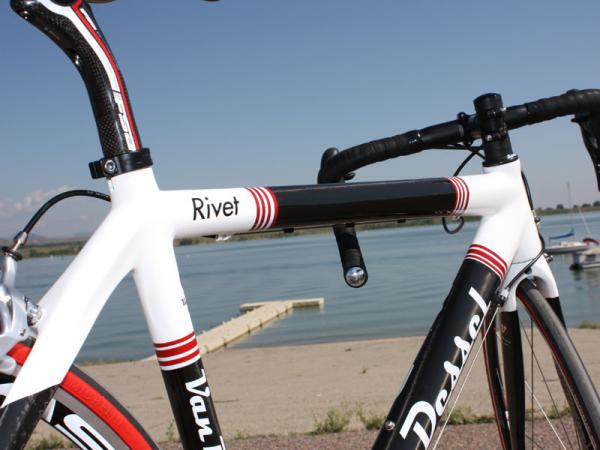
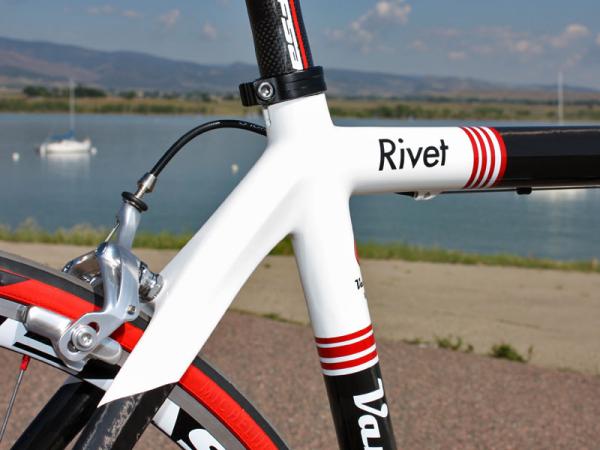
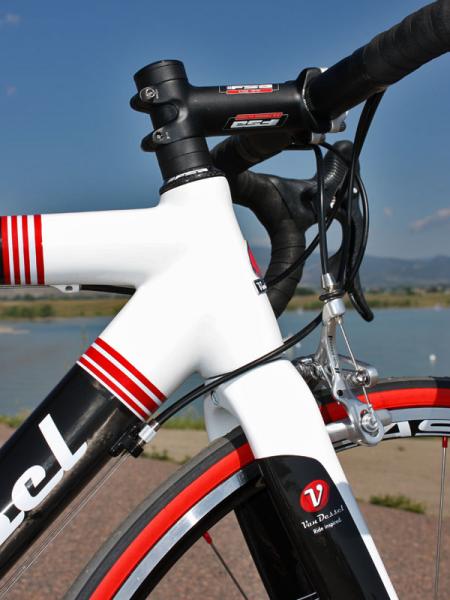
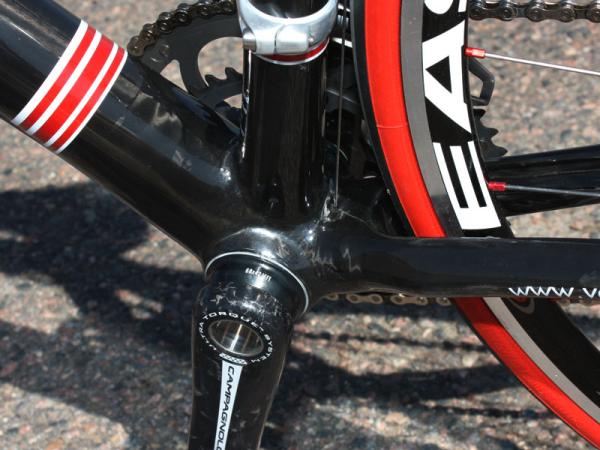
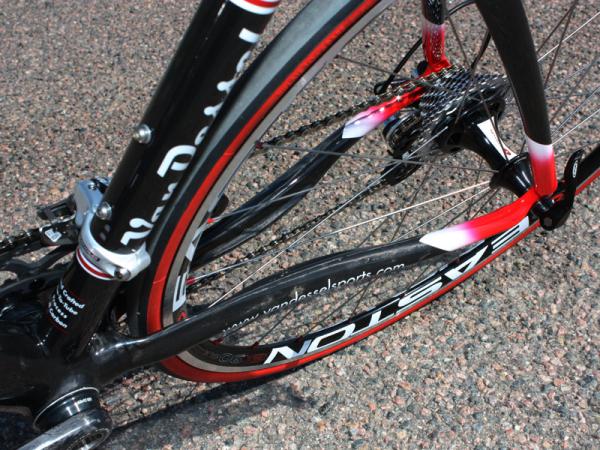
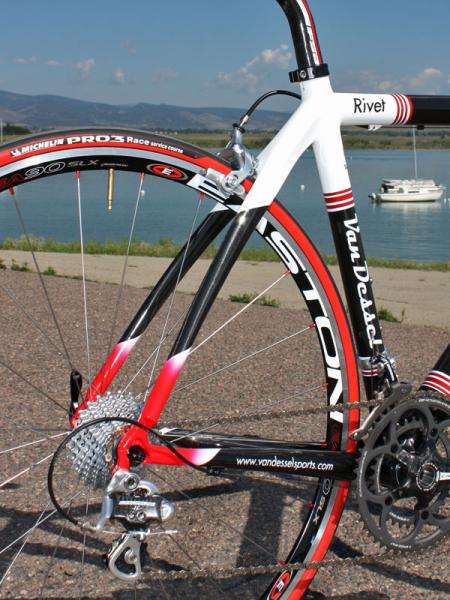
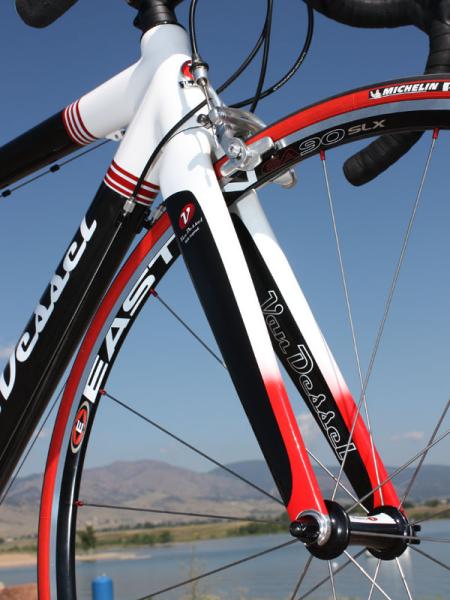
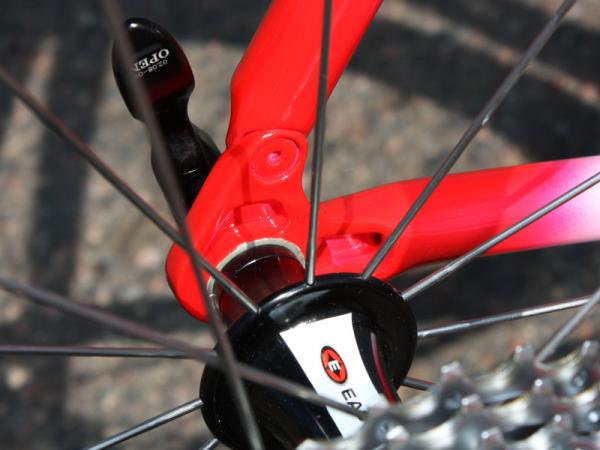
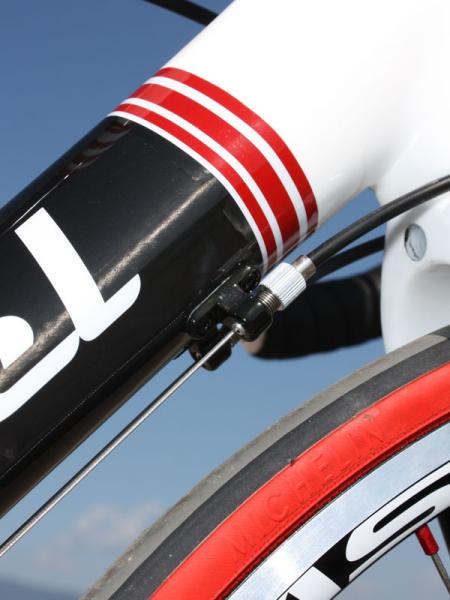
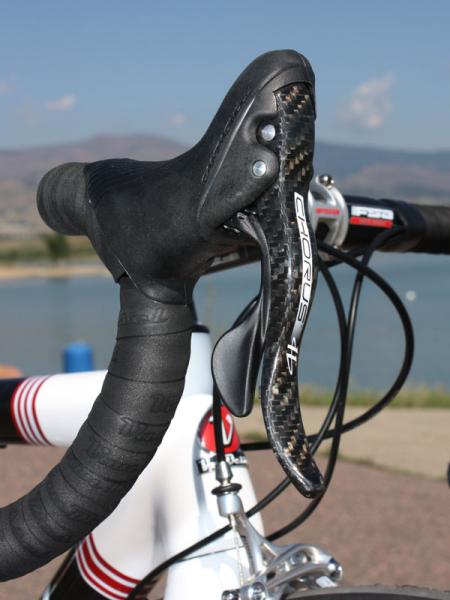
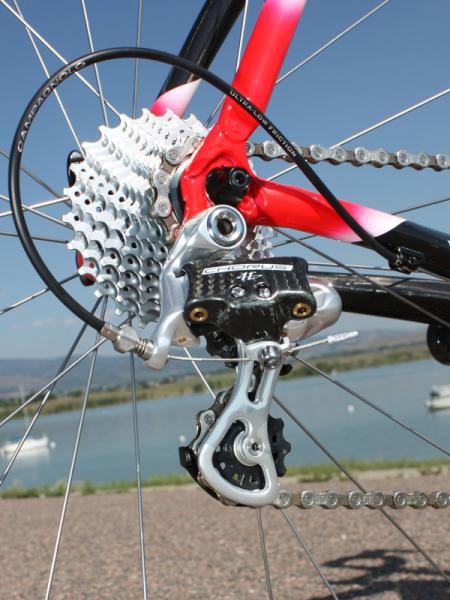
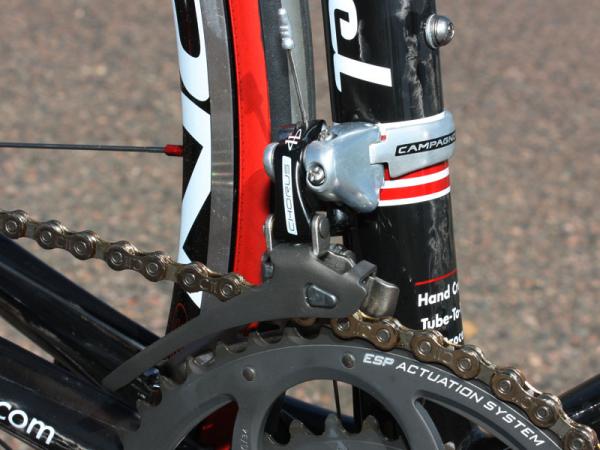
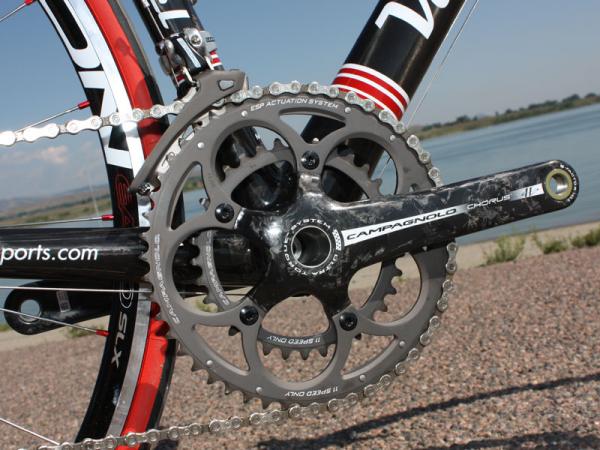
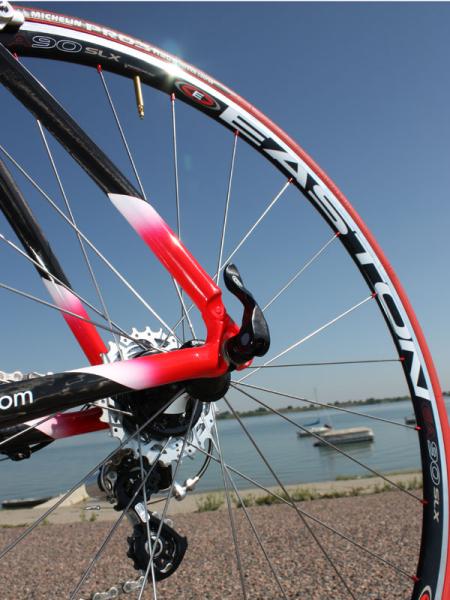
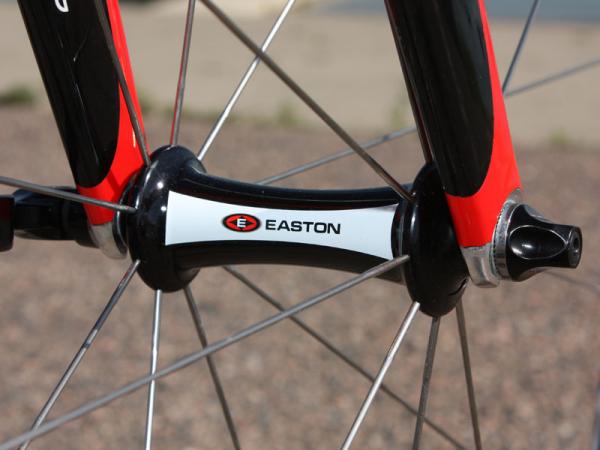
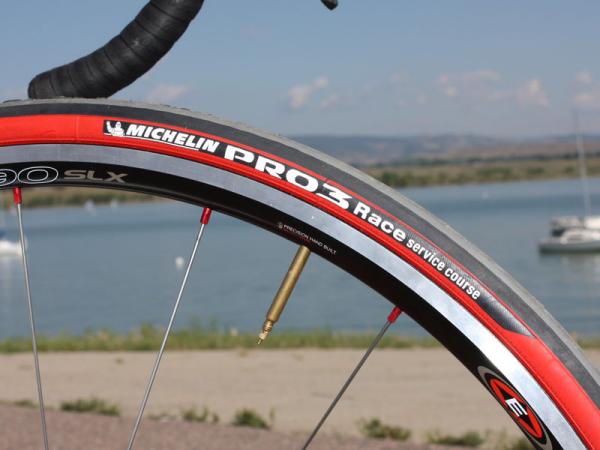
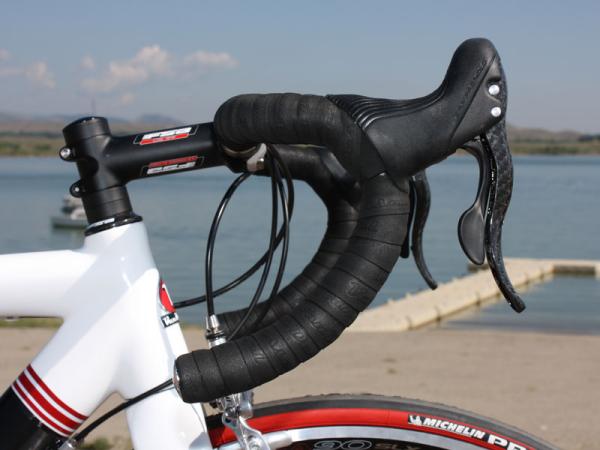
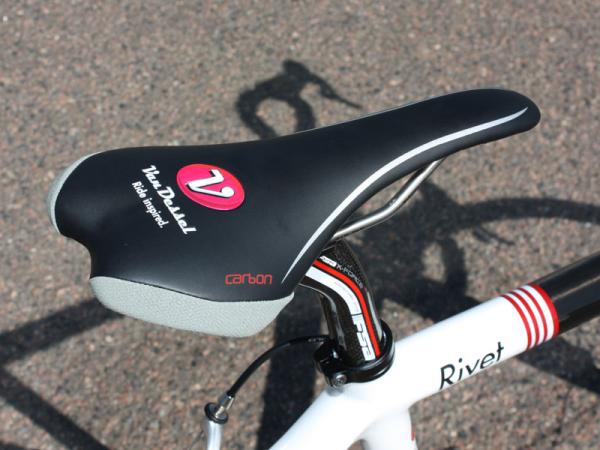
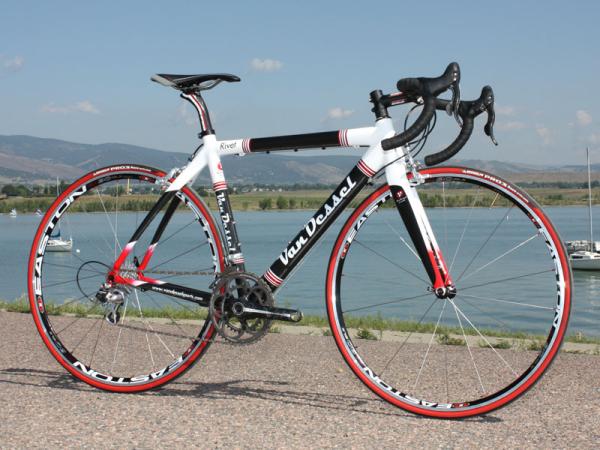
The Van Dessel Rivet epitomises the fast and furious nature of American-style criterium racing with an efficiently snappy feel, quick handling reflexes, light-but-not-too-light weight, and a price tag that won't hurt too badly if you stuff the thing into a curb.
Actual weight of our bare 52cm test frame is a very reasonable 1,121g (2.47lb), and while it may not be quite as light as some of the true featherweights out there, Van Dessel have infused it with a reassuringly solid spine.
The Rivet makes no apologies for what it is and we won't either. It's not a 'sportive machine' or an upright 'enthusiast bike', there are no whizz-bang marketing acronyms, it's not the most-anything and it isn't aero in any way. But the reasonable price nets you a straightforward road racing formula that's utterly effective.
Ride & handling: Quick and precise handling, with excellent high-speed manners and a lively feel
True to form, the visceral Rivet at its best when pushed hard and Van Dessel offer up no have-your-cake-and-eat-it-too illusions of 'lateral rigidity and vertical compliance' – this thing is all bones, muscle and sinew, and more a tool for beating someone else to the line than a casual spin through the hills.
Rear-end stiffness is very good overall but front triangle stiffness is simply fantastic. As such, the drivetrain feels admirably efficient when motoring along in the saddle but the Rivet is especially alive when out of the saddle and wrenching hard on the drops.
Though pedalling efficiency always seems to get the lion's share of attention in technical discussions about bicycle frames, front-end stiffness is at least as important and contributes greatly to the Rivet's quick exit out of grippy corners. There's no whippiness in the front end, and wheel tracking is superb for predictable handling.
Speaking of handling, there are benefits to the stiff front end here as well. In keeping with its eager personality and despite what our tester's 72.5° head tube angle would otherwise suggest, turn-in is precise and the Rivet is notably quick to change direction so it's best not to fall asleep at the wheel or let your mind wander too much.
As long as you're not overly aggressive with your bar movements, the Rivet will faithfully pull you through tricky decreasing radius turns, too, and yet isn't overly twitchy in either sweeping mountainous descents or fully tucked speed-limit-flaunting pitches at 50mph. When it eventually comes time to slow down or stop, the well-reinforced fork and head tube area keep the front wheel firmly planted for reassuring braking.
As befitting most bikes that follow the light-and-stiff motif, the Rivet is plenty capable going uphill as well. Short, steep pitches are certainly one of the bike's fortes but it's also perfectly happily settling in for longer, more gradual stretches as well. Positioning is excellent, too, with a short-but-not-too-short head tube, suitably long cockpit and appropriately aggressive seat tube angle that lets you get as far back as is reasonable.
The Rivet does have a few chinks in its armour, namely in terms of ride refinement. Whereas true top-shelf hardware really does manage to be both ironclad-stiff yet oddly smooth, the Rivet is just stiff.
To be fair, the thin-walled tubing does an excellent job of sucking up small bumps and squelching high-frequency road buzz, and it offers a pleasantly resilient and springy feel on reasonably smooth tarmac. However, broken asphalt makes for a somewhat choppy ride as even medium-sized impacts shoot right through the oversized seatpost into your bum.
As a result, the Rivet is a joy to ride on shorter, more intense outings but is definitely a little more taxing on all-day jaunts. Mix in the fast handling and it probably wouldn't be our first choice for a casual century unless the roads are smooth.
Frame: Very stiff chassis thanks to 'bigger is better' philosophy
None of the ride characteristics comes as much of a surprise given the frame construction. Van Dessel mostly eschew overly convoluted sculpting, reinforcing ribs and scallops for the Rivet in favour of just modest shaping and a more straightforward 'bigger is better' design philosophy on its tube-to-tube carbon frame, especially in the main triangle.
The top tube is as big as many down tubes, the down tube bears strong familial resemblance to a Coke can, the head tube surrounds a stout 1 1/8in-to-1 1/2in tapered steerer (with a correspondingly enormous crown and legs on the nearly all-carbon fork), and the seat tube sports a healthy 34.9mm round diameter from end to end.
In keeping with the theme, an oversized BB30 bottom bracket shell and burly wishbone yoke join the front triangle to the meaty stays and both ends are finished off with aluminium dropouts and fork tips.
As such, there's stiffness aplenty where you want it but also a little extra where some more softness would be nice. Still, at US$1,999 for the frame, fork and headset it's an excellent overall race package. The simple bare-carbon-and-white paint job should appeal to most and offend few, though we could do without the red accents at either end which seem a bit out of place.
Equipment: Choose between a frameset, complete bike or custom build
Van Dessel offer the Rivet as a bare frameset but also in any number of preset or customisable builds with options that not only include individual component models but also dimensions and gearing. Our tester was fitted with a full Campagnolo Chorus 11-speed group (complete with press-fit BB30 cups), lightweight Easton EA90 SLX aluminium clinchers, and finishing kit from FSA and Michelin for a total weight of just 7kg (15.43lb) without pedals and a total cost of US$5,499 including upgrades – not exactly cheap, but far from overpriced.
Shimano and SRAM may be getting all of the attention these days but Campagnolo's workhorse Chorus package continues to blow us away with its tantalising mix of reasonably light weight, shifting accuracy, multishift-friendly and now even more comfortable Ergopower levers, and indescribably silky feel that the other two have yet to match.
Chain movement both front and rear is smooth and precise, lever ergonomics are unflappably natural feeling, and the non-ceramic bottom bracket is still among the smoothest in the industry. Not to go unnoticed, either, are the inarguably pleasing aesthetics – it's tough to go wrong with shapely curves, polished aluminium and just enough carbon fibre to satisfy the tech weenies. Yes, please.
Likewise, the sub-1,400g Easton EA90 SLX clinchers are another standout from a company most people still equate more with handlebars. The relatively low-profile alloy rims are light and spin up easily, the svelte hubs rotate with notably low friction (and include adjustable preload), and it's all held together with double-butted Sapim stainless steel spokes in a consistently well-built package. Top-end Michelin Pro Race 3 tyres offer up an ideal match, too, with a fast roll and tacky cornering grip.